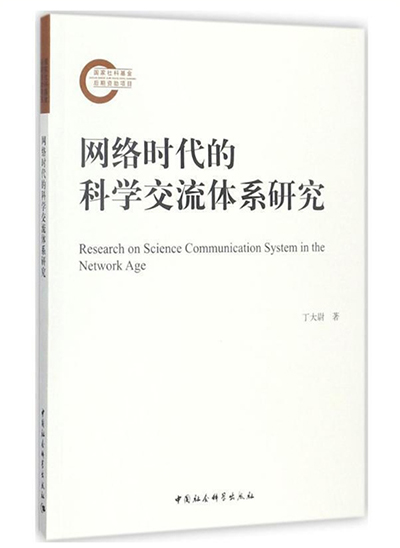How does network impact science communication?

Research on Science Communication System in the Network Age
Written by Ding Dawei, a professor from the School of Marxism at Yantai University, Research on Science Communication System in the Network Age focuses on a new environment for scientists to acquire knowledge in the internet age. As the network technology has changed the world, the connotations and extensions of scientific exchanges have also undergone huge changes. Interlocutors in scientific communication are facing unprecedented challenges.
Ding argues that this new situation shouldn’t be simply attributed to changes in database resources. Changes in databases are essentially a technical means, but not an end. In the interaction between technology and society, the promotion and struggles of different interested parties, are the immediate cause of the current changes in academic resources. In this process, the scientist is merely one of the stakeholders.
Ding comprehensively adopts case studies, comparative research, questionnaire surveys and other research methods. He expounds on the new characteristics, new trends, and new laws of the distribution and dissemination of digital knowledge resources in the contemporary scientific communication system.
He also explores the conflict between the monopoly and anti-monopoly forces of digital knowledge, and the challenge posed to the scientific community’s code of conduct. At the same time, he conducts an in-depth and systematic case study on such issues as how changes in the scientific communication system have affected the production modes of scientific knowledge.
The author redefines the connotations and extensions of the openness and publicness of the scientific communication system. Both openness and publicness regard knowledge as public products and oppose the commercial operation of knowledge. Despite this, the requirement for openness is a return to the awareness of knowledge publicness but not completely equivalent to the requirement for publicness.
Publicness is a spiritual quality inherent in science, and its opposite is the secrecy of knowledge. In contrast, the opposite of openness is the commercial monopoly of knowledge. The essence of openness means a reconsideration of the property rights of scientific knowledge products. Although the two share great similarities in target design and in the requirements for sharing scientific knowledge products, they actually have great differences in value judgment, realization paths, institutional guarantees and restraint objects.
Wang Yanhang is a research fellow from the Chongyang Institute for Financial Studies at Renmin University of China.
Edited by YANG LANLAN
